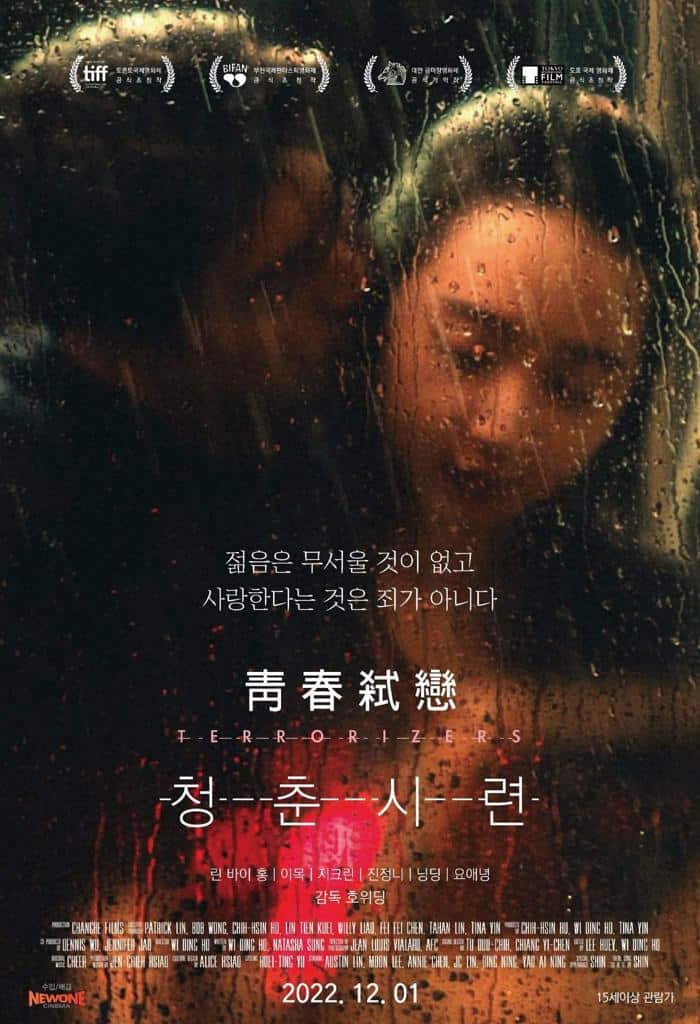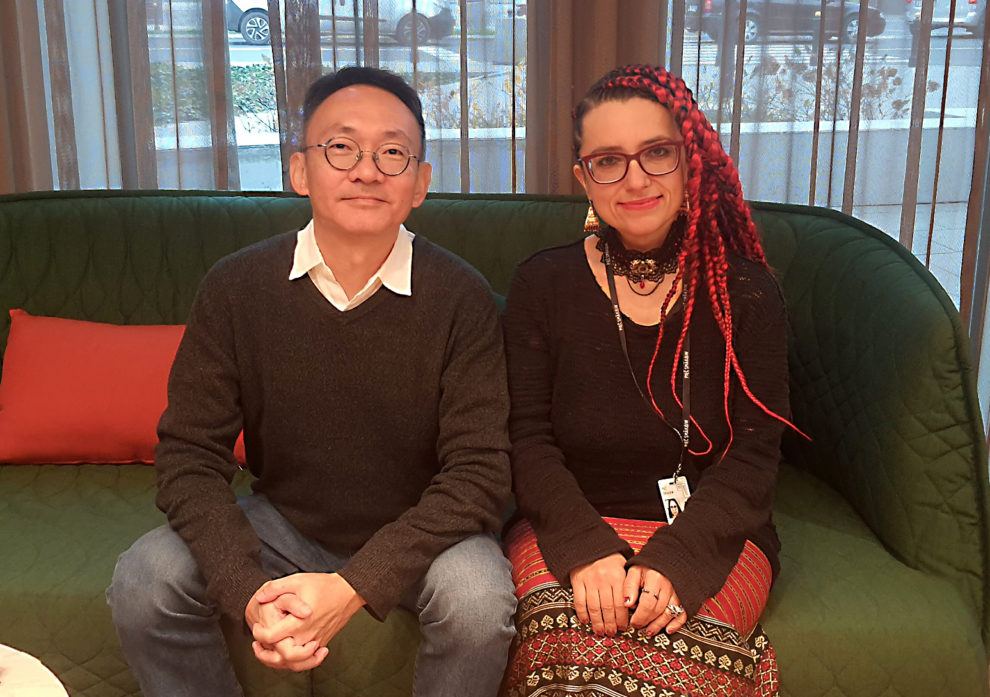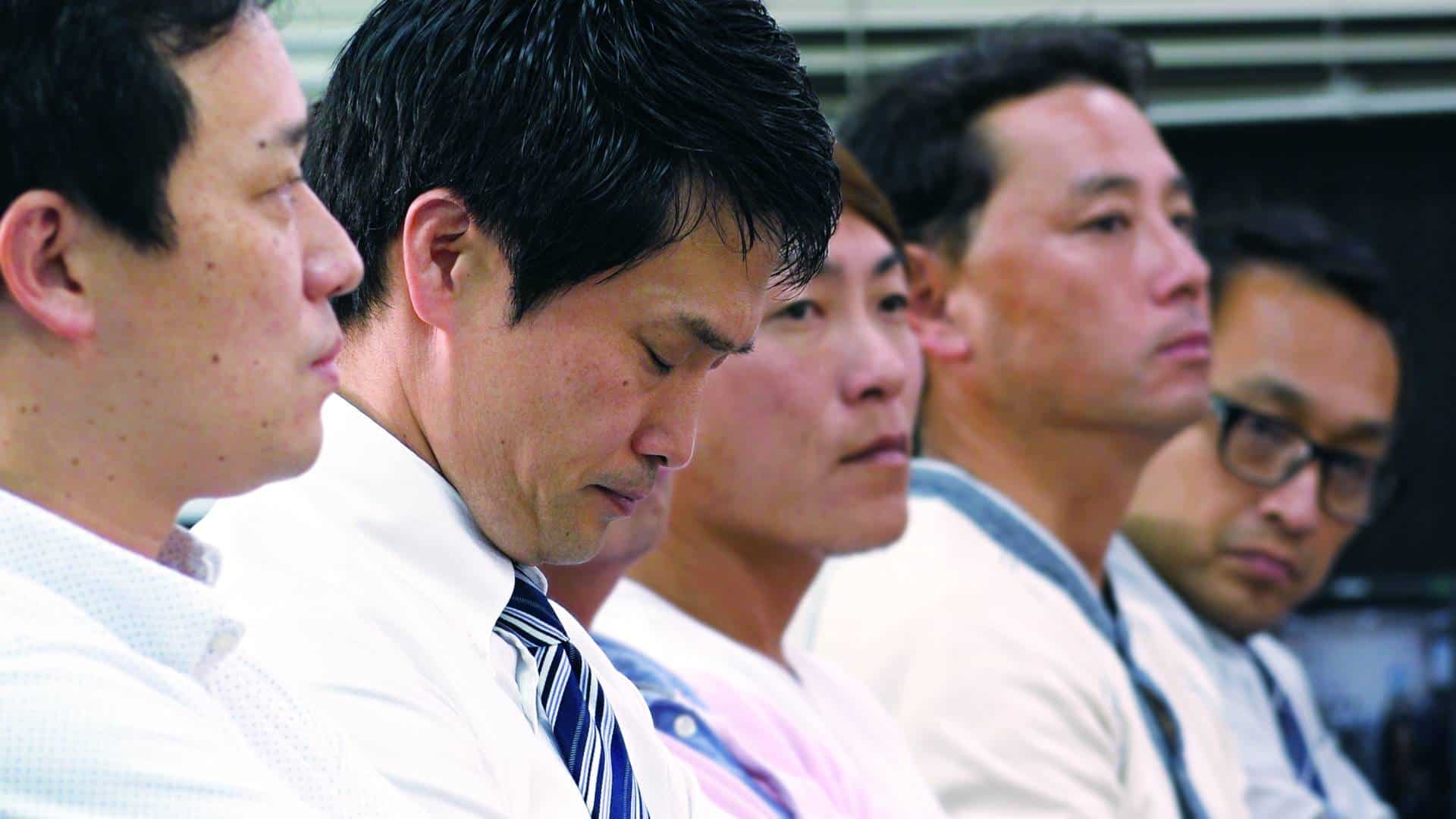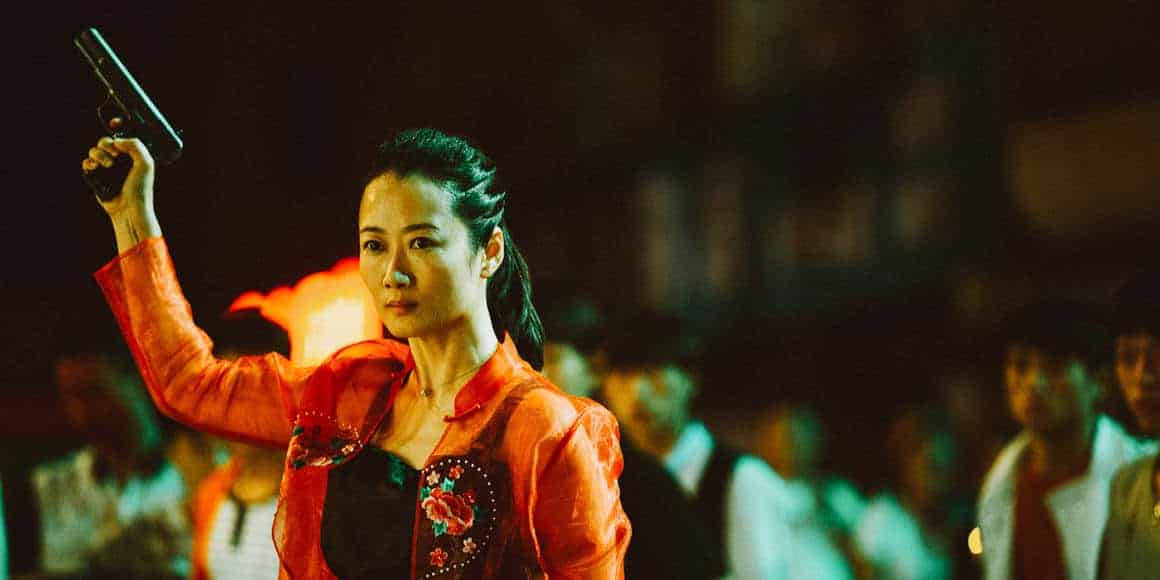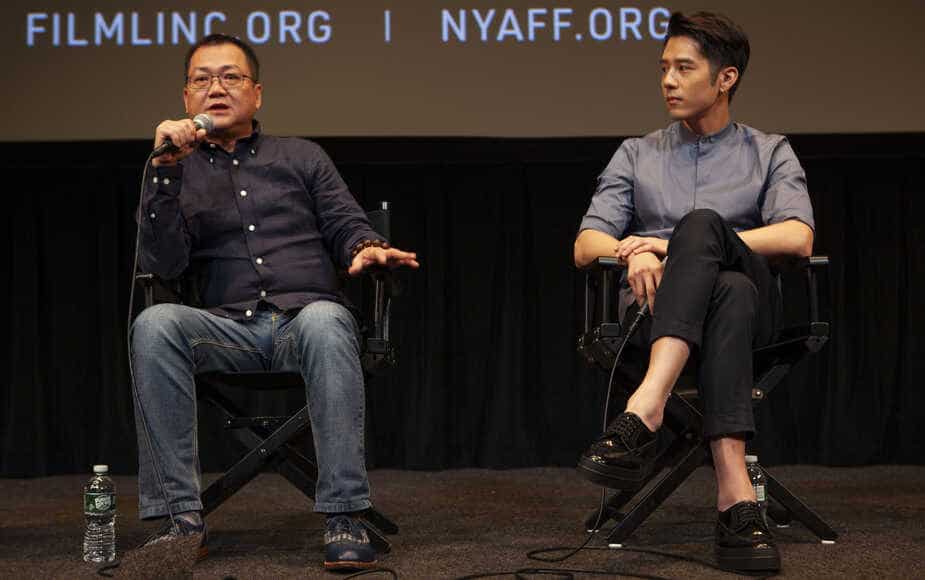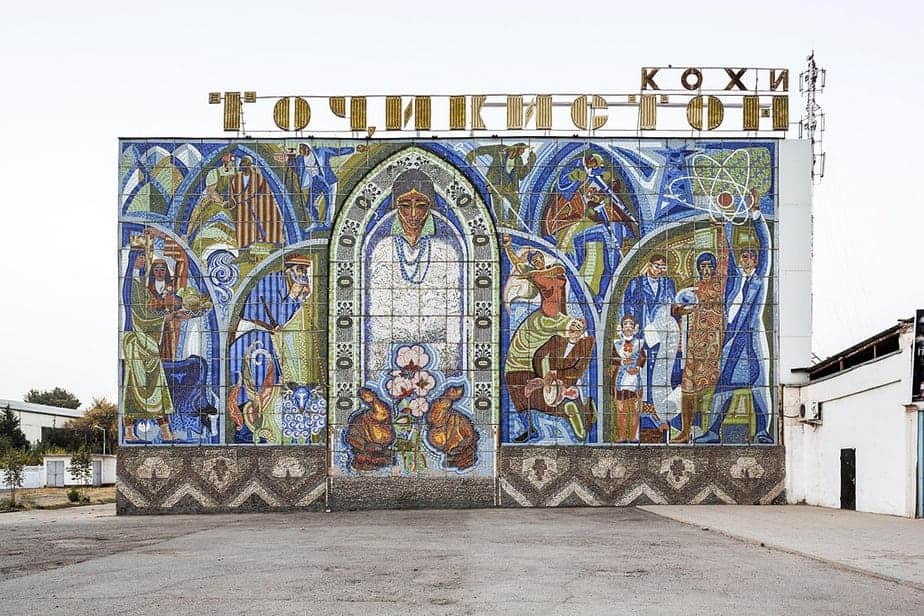Ho Wi Ding is a Malaysian director working mostly in Taiwan. Born in 1971, he studied in New York. His short movie “Respire” was awarded at the Cannes Film Festival and his debut feature “Pinoy Sunday” brought him a Golden Horse Award for the Best New Director.
On the occasion of “Terrorizers” screening at Five Flavours we talk to him, among other topics, about playing with audience expectations, loneliness, Edward Yang and overwhelming film scores.
Terrorizers screened at Five Flavours
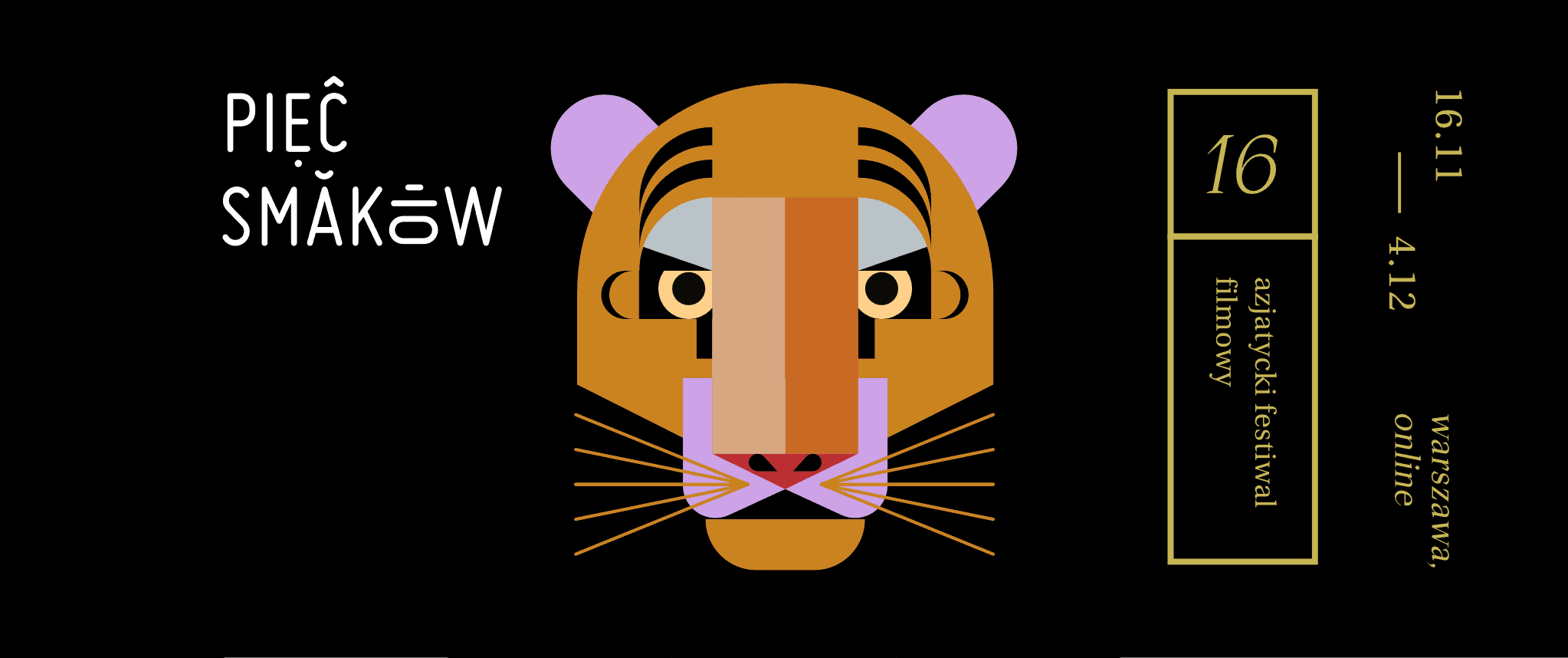
I'm very excited we can talk. This is my first face-to-face interview since… before the pandemic.
And this is my first face-to-face festival. “Terrorizers” premiered in Toronto last year, but I haven't been there in person.
Zoom festivals times…
Tough ones. So I look forward to meeting the live audience and discussing my film with them.
Okay, so let's talk about your movie. We meet on the occasion of the Five Flavors Film Festival, which this year hosts the retrospective of Edward Yang. And “Terrorizers” share the title with one of Yang's works from the 80s. The reference lies not only within the title: both movies are about young people in Taipei and have a polyphonic narration of intertwining stories. I wonder if it's a coincidence…
[Laughter] It's not. Of course, the part I'm screening my film at the festival presenting Yang's retrospective is a coincidence. I even asked the programmers in an e-mail “Are you sure you want to do that?.” I was paying homage to Edward Yang. As a young filmmaker, you always have someone to look up to and he was one of the reasons I went to Taiwan to became a filmmaker. I am not Taiwanese, I came from Malaysia. When I studied in a film school in New York, we watched so many movies from Taiwan on the big screen in the Lincoln Center. I drew plenty of inspiration from Tsai Ming Liang, Hou Hsiao-hsien, and Edward Yang, the three Taiwanese big ones. I owe a lot to these auteurs.
I guess not only you…
I also watched many movies by other filmmakers, like Wong Kar Wai or Kieślowski. Actually, Kieślowski is one of my favorites… The idea for this story came to me back then, when I was a student. It was originally set in New York, in Chinatown, but I didn't get a chance to shoot it, so for years I've buried it in a drawer. My previous feature, “Cities of Last Things”, was a reverse chronology movie. I like playing with time a lot, I think it is an exciting way to tell a story. When I started planning the new project, it occurred to me it may be interesting to revisit my old concept, take it out of the previous setting, and retell it now, when I am a mature, grown person, who has explored Taipei for so long. Initially, I wasn't planning to title my movie “Terrorizes”. But I like this word, it is not used very often. People usually say “terrorist”, not “terrorizer”. Is there an entry like that in the English dictionary at all? I guess Yang came up with it for the movie. Also “a terrorist” has particular connotations. You associate it with ISIS and such these days. “Terrorizer” sounds kind of poetic to me, I like the tone of it. So I've just thought, what the heck, I admire Yang as the maestro, this way I can connect to him. So well, coming back to the initial question, it is not a coincidence, it is a whole history of loving his films. Also, there's one funny story behind…
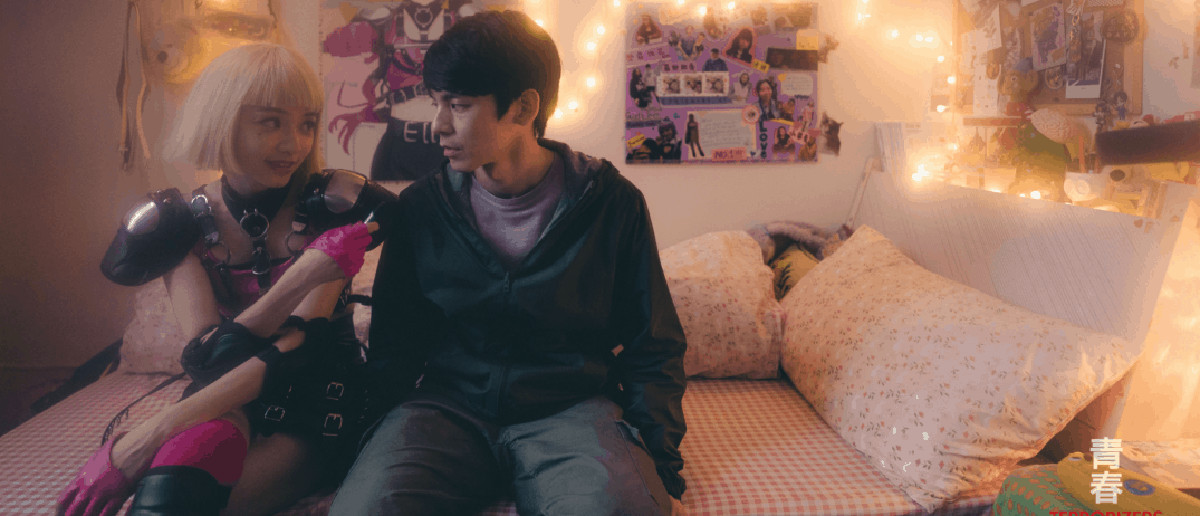
Yes?
I've come across Yang on several occasions over the years. I was in Toronto and I saw him promoting “A Brighter Summer Day”. He was there after the movie, a very humble filmmaker. Then years later, I spotted him smoking outside the Lincoln Center, where they were screening “Mahjong”. Then in Singapore, he was sitting in front of me, during the screening of “Yi, Yi”. Again after several years when I was attending Cannes Film Festival he was a jury member for a short film competition. So I've met him four times within the span of twelve years. Although I haven't had a chance to talk to him, I formed a kind of connection.
This sounds very cinematic.
It is very cinematic!
You should include it in one of your scripts, a story of someone meeting an artist, who influenced them, on various stages of their life.
[laughter]
Coming back to the title. Now that we know the story behind it, I am also curious about the more literal side of it. Who or maybe what do you mean by “terrorizers”?
I leave it for my audience to decide. But talking from my standpoint… There are a lot of happenings nowadays when a normal thing can burst into tragedy when it goes through social media. In the movie we have a guy who takes violent action, so he is the “terrorizer”. But then the media focus on a girl and leaked videos, so they shift the attention and the weight of events from the culprit. People are curious and want to dig into it… So suddenly society and media became terrorizers, and no one cares about the real proprietor any longer. That was my interpretation. But nothing is black and white, there are a lot of grey areas. There's never one single cause. Who knows… maybe it was the masseuse, who convinced Ming Liang “Go and chase after your girl.” So I don't want to say “terrorizer”, but “terrorizers.” At the end of the day this movie is about young people, who aren't bad or creepy. It is a melancholic view of confused individuals trying to face the world.
Definitely, there are multiple layers. You also show some aspects of modern technology like cam girls or VR as alienating for some of your characters, detaching them from reality and hurting their real-world relations. But there is also the home background and parents, who seem uninterested.
Yeah and the characters for sure lack their parents' care. So also the parents can be “terrorizers.”
And what's your relation with modern technology? Do you perceive it as a gift or something dangerous? Or maybe just a handy tool?
It was supposed to be a tool. But you're not supposed to have a fixation over a tool. Of course, it is very convenient. You can translate everything, navigate, and look at a map… like you said it's handy. I don't know how it is in Poland, but in Asia, a smart phone morphed into a part of people's hands: they use it when they wake up when they walk, and it's always there. It occupies such a big part of their lives, it becomes a crazy obsession. So I am not a big fan of what social media do for sure. People spend too much time glued to screens. Sometimes it can turn good. Like… with movies in Covid times. It was great to pass time watching them online. But if you think this is the only way to experience a film… that's it. You gotta be able to put the thing aside, go out and face reality. A lot of people confuse the tool with reality. In my movie, when Ming Liang is looking at Missy, a cam girl, he thinks “this is my girl in reality.”
But also let's note that attitude toward modern technology is a generational thing. I think of the times when parents were warning kids “don't watch too much tv, or you'll become a fool.” So now it should be “don't spend too much time online, it's not good for you.” However, if you asked my daughter, she'd be like “No, it's fine. It's like TV, you watch TV. This is fun.” We are the older generation, who faced transit from no cell phone to cell phone. So genetically speaking, we are adapting it. We don't have that in our system. But for our kids, it is a part of their life they've known from the start. So maybe I am just paranoid [laughter].
We live in a cyberpunk reality now…
For me, as a filmmaker, it is important to acknowledge “stop looking at a screen and look at the world, immerse in it, experience it.” With this kind of emotions, we can make better films.
Check out the review of the film
You mentioned your previous movie, which has a reverse chronology. Also “Terrorizers” doesn't follow a linear structure. For me, the script resembled more a well-constructed novel, so I was wondering if you're also a reader. Maybe there are writers who influenced you as a filmmaker or screenwriter?
I've read a lot, I think. English wasn't my first language. I started learning it late and reading was a language practice for me. I've absorbed a broad variety, some pulp fiction, Stephen King, “One Hundred Years of Solitude” by Marquez, and plenty of magical realism. Also Calvino, Paul Auster from New York. I admired Auster at some point, but don't enjoy his more recent stuff so much. Murakami – I've read him both in English and Chinese translations. It was exciting to compare the differences between them, as Chinese is closer to Japanese than English. I've read Raymond Carver's short stories. I am fond of this kind of short form. Literature and movies are the only two mediums allowing you to screw away with time. We can do a lot of funny things with it. Like I did in “Terrorizers” and “Cities of Last Things”. My first feature “Pinoy's Sunday” was a very linear story. So afterward I thought “Why not try something else”. And I trust my audience.
That is a good thing.
But viewers do not always follow. Sometimes I get this feedback “why didn't you put some texts saying this and this many years earlier or later, we got confused.” Usually, this kind of audience like repetitiveness when watching a film, they are used to it. Everything has to be explained, through a voiceover or a text on screen, or a flashback. Sometimes the audience doesn't like to be challenged. Sometimes when you work hard, and come back home, you just want to watch a simple entertainer. As a filmmaker, you need to find some balance and decide how and whom you want to entertain… or if you want to entertain anyone at all.
How it influences finding funds? Does it happen that you have an idea for a movie, and someone tells you: “I will give you the money, but it's too complex, you have to do it simply”?
I think I'm lucky I'm in Taiwan, because the Taiwanese government has a grant support system. They cherish films that are not mainstream representatives. I gained credit as a director who screens his movies at international festivals, so they don't expect me to make a film that is a box office hit. That would be weird if I did so. For them, it makes sense that I deliver movies that can represent Taiwan overseas. Also in Taiwan, I have my own company and my producers, and that helps. I just need to find the right people and tell them what the story is about. They know that none of my films was a box office hit and I ask them if they want to be a part of this journey. And surprisingly a lot of people do. When they don't think about it as a business, but as something they can praise about. Or maybe sometimes they enjoy seeing their names in the credits or walking on a festival red carpet. I am very lucky so far. With my three features, I could do whatever I wanted… at least story-wise, because of course, I was restricted by budget.
So coming back to the story. I wonder what is your script construction process.
The issue with me is that I don't want to be a visceral filmmaker with his heart on his sleeve. I am fond of watching smart films, e.g. films by Edward Yang, David Fincher, or Hitchcock. I appreciate their works so much because they are treating movies as a game to play with the audience. It is not like we are trying to fool the audience, but we like to keep all the surprises structurally. We don't rely on emotions. Because I like it, it is easy for me to construct a movie in this manner. In “Cities of Lost Things” the script is the same as what you watch in a movie. But in “Terrorizers” we went through a couple of re-writes and cut-outs. For example, when we realized at the script stage that the film is going to be 3-hrs long and we don't have a budget for it. Then after we finished everything, the movie was still too long [laughter]. So once again we rewrote it with the editor. Whatever you watch right now, differs a lot from the initial script. E.g. the masseuse Ding Ning and Xiao Zhang were neighbors. And they talked a lot through their windows.
This is very interesting, this bond between Ming Liang and Ding Ning. She seems the only human being toward whom he forms any real feelings.
She is a mother figure to him, and he lacks the attention and affection of his own mother. But it is weird, their relationship. Remember it is a paid service, a money exchange. Put yourself in her shoes. We don't know how Ding Ning behaves in relation to others. Maybe she gives this kind of care to every customer because it makes them come back and pay again.
It is a complex movie. Was editing challenging?
At some point you have to control your urge to keep fixing it, otherwise, you're just going to do it forever. It's a self-control task.
I kind of know it from my own experience as a writer and a translator. I can keep revising forever…
The good thing about the Taiwanese grant system is that at some point you need to deliver. They give you money, but you have a deadline to keep, there's a line saying: finish it, finish it, finish it. Also sometimes there is a certain moment to make a particular project. If you wait e.g. two more years, you might not have the same passion or it will no longer be a good time for it. However, with “Terrorizers” if I had a chance to forge that old idea into a movie in my New York days, it could turn out to be something messy. So it's good I made this film now.
Earlier you mentioned that you like makers playing with the viewer. In your previous movie, you played with several genres. And it happens also in “Terrorizers”. I enjoyed how you change the context of the scene. Like the telephone booth in the rain, initially, we get a sweet love story. But in the later stages of the movie this scene turns into something dark and disturbing. So what's your approach to the genre?
I watched so many mainstream Hong Kong movies when I was little. Our diet was Hong Kong films and Hollywood films. There was no Kieślowski, Fellini or Kurosawa. I've had enough of the genre. When I started watching auteur films, I realized they don't have it. Maybe to some extent, but they don't rely on it. Tsai Min-liang is not playing with genre, that is for sure. Hitchcock used genre effectively. Successful genre filmmakers like David Fincher or the director of this year's “Nope”, Jordan Peele, they understand the genre well enough to question it. So it's another act of balancing. As you probably have noticed by now, I like balancing stuff. I want to make a mainstream film, but with an edge, I want to make an edgy film, but not transgressive. I am constantly balancing. I don't want my movies to be traditional genre flicks. I like to make you think they are, but they are not. And that's why I get people confused. When you make the audience confused, your film doesn't earn money. [laughter] With time I realized that filmmaking is a craft. And I feel less and less an auteur and more and more a skillful craftsman. So for me, when people notice that the scene like the telephone booth one has different angles, I've achieved my goal, and managed to show my skills. I'd like to be this guy, who knows the film language so well that he can play with the audience's expectations in a good way.
It works for me!
I've just realized how powerful the medium is. That is why social media, the thing we talked about, is so dangerous. You think that whatever you saw was true. But it was only the reality of the screen, of the particular frame. You don't know what lurks outside the frame. Sometimes you don't know what was in the previous one, or what follows. It may change the perspective completely. I think people underestimate the power of the frame. It's very dangerous. So many fake news can be created by manipulating it.
We live in an era of fake news.
Take the scene from the beginning, when the glass breaks. You see the characters, and probably think they are siblings or roommates. It turns very different when you'll play it again.
It does!
Gotta admit, that I couldn't get Chopin's “Nocturne (Op.9 No.2 in E-flat major)” out of my head after watching the movie. Why you decided to use this particular piece instead of a score composed specifically for the movie?
Again we have a coincidence, as I never thought I will screen the movie in Poland. It is where Chopin was born, right?
Yes.
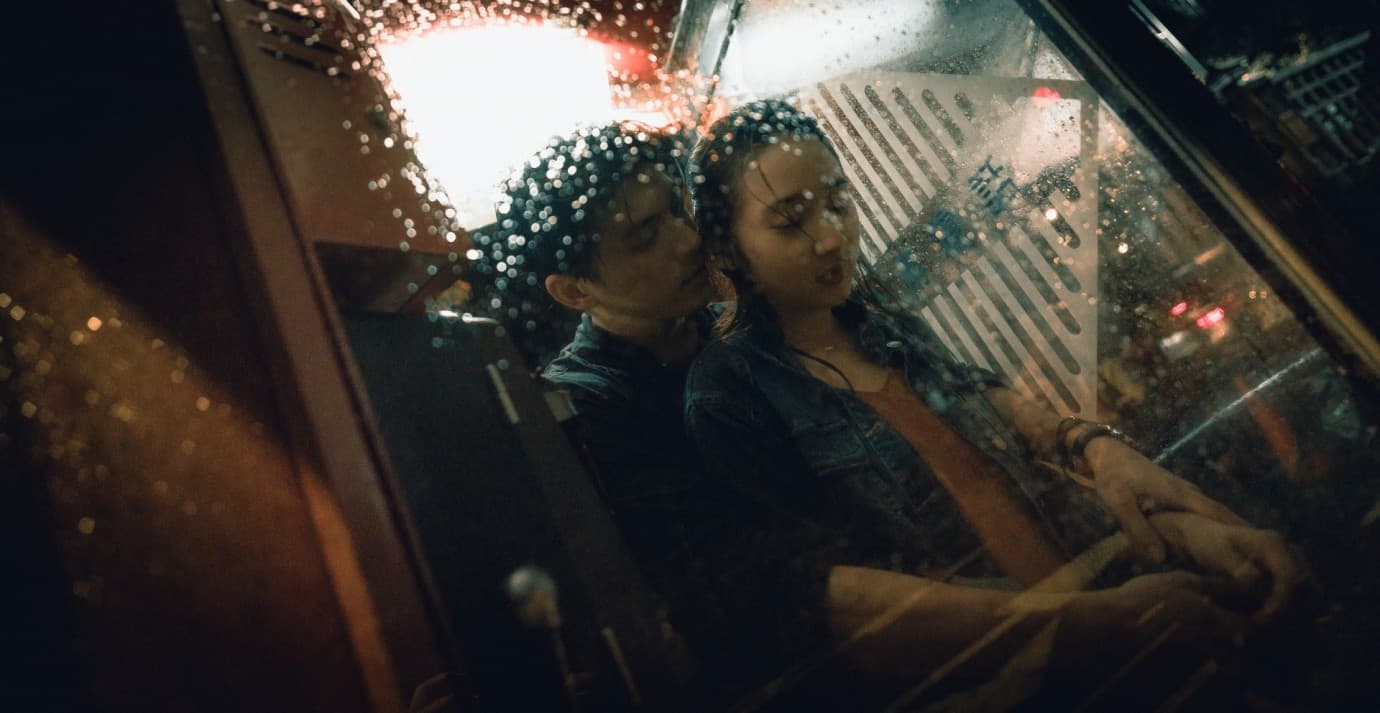
I am not a big fan of a film score. I hate when it shifts away the focus from acting and framing. Take the scene, when the two girls are fighting and then making love. If there was music in the background, you would be overwhelmed by it, not focused on the emotions evoked by the scene itself. The problem with music is that it dictates the emotional response, it tells you how you should feel. So it is not fair to the actors and their efforts, and a good scene. But nowadays, more and more films are using score this way. Take an average Netflix film. You don't have to watch it, it's enough if you listen to music. All you notice is music, nothing else but music. Working on “Terrorizers,” I hired a composer from Taiwan. But every time I tried to use the score with a particular scene, it didn't work. Something was missing. In the scene when the girls get attacked, she's wearing headphones. I decided that she'll be listening to classical music while waiting for her lover. I wanted “Nocturn” for it. It was supposed to be just for her, used only in that scene. But I realized the tune should sound whenever she is happy, it should become her theme. So with my editors, I put it wherever we felt it fitted. We talked about playing with the audience's expectations when it comes to genre. Why can't we do the same about classical music? Kubrick used Beethoven in “A Clockwork Orange”. It was an inspiration. I just needed to restrain the urge to put it in every single scene. [laughter] In the end I think it reoccurs about six times. We hired two pianists (and one of them even participated in a Chopin piano competition) to perform it differently. If you are a music lover, you'll notice that. While the melody is the same, the pianist is messing around with the chords she plays with her left hand. So in the same manner that I play with the structure or the genre I also do it with music.
So you are like an illusionist or a juggler.
Unfortunately, I am. I should make a more straightforward genre movie to make a lot of money out of it. [laughter].
I guess it's better to be faithful to yourself and to your artistic vision…
I hope this is an artistic thing, not some crazy idée fixe. [laughter]
To conclude, for me your movie, although playing with mainstream conventions, is mostly a tale about the loneliness of your characters. And it suits post-pandemic emotions so well…
I think I'm pretty good at loneliness because I travel a lot, and when you travel a lot, it's not easy not to feel lonely, as you can't have your family with you. Also being a student, all by myself in New York, I experienced loneliness in a good way, and in a bad way, both of them. So I guess it's easy for me to portray my characters as lone… and that's why I can't make a family movie. Unless a dysfunctional one. [laughter]
“Terrorizers” is currently screening in Korean cinemas
